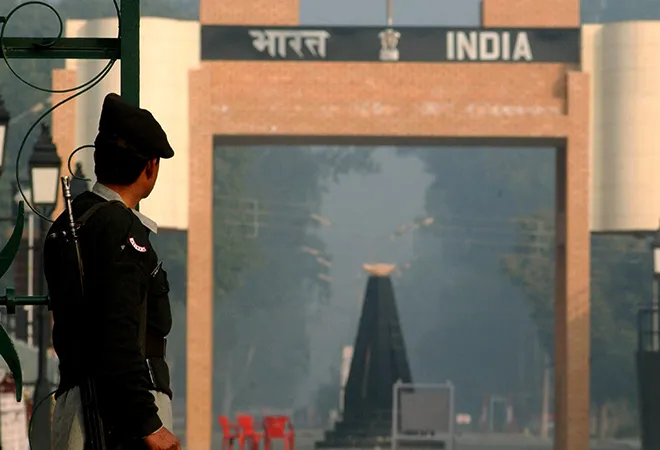-
CENTRES
Progammes & Centres
Location
New Delhi would be well advised to look at the Pakistan situation with an open mind or risk being left out of the flow.

India-Pakistan relations stand at a cusp. Pakistan is approaching the sweet spot in Afghanistan where Taliban is set to join the mainstream. After being seen as the villain of the piece, Islamabad is being cast as a guarantor who will ensure that the country will no longer operate as a centre of global jihad. Earlier this month, Islamabad not only sacked pro-Khalistan leader Gopal Singh Chawla from the Pakistan Sikh Gurdwara Prabandhak Committee (PSGPC), it also went along with India’s insistence that the pilgrims to Kartarpur be given permit free entry to the shrine. Not so well known is that Pakistani infiltration across the LoC into Jammu & Kashmir has virtually come down to zero in 2019. And this includes months in which melting ice actually facilitates it.
It would be easy to put this down to the post-Balakot effect. But taken together with other issues, it would suggest larger forces at play. One is certainly the US which has a major interest in exiting from Afghanistan and ensuring that its departure is not marred by an escalation of violence. This goal has lubricated Prime Minister Imran Khan’s path to Washington DC. Without US goodwill, Pakistan would not have gotten the $6 billion bailout that it recently received from the IMF. Even so, the sword of the Financial Action Task Force (FATF) hangs over Islamabad demanding that it fulfil its action plan on money laundering and terror financing. In the last meeting in June, Pakistan managed to avoid being blacklisted. But it remains in the grey list and if it does not complete its action plan by October 2019, it faces being denied loans by a group of powerful countries including the US, China, UK, France, Germany and the Gulf Cooperation Council.
This has resulted in another salutary action by Pakistan — the arrest of Lashkar-e-Taiba chief Hafiz Muhammad Saeed and 23 of his accomplices for terror financing and money laundering. This has hit its target in the US, where President Donald Trump believes that his administration’s pressure has led to the action. And finally, there is the Kulbhushan Jadhav verdict which has been hailed by both Khan and Prime Minister Narendra Modi. It offers the two countries a way out of an issue that retains the potential of poisoning their relationship. From the time he assumed office last year, Khan has the declared intention of seeking peace and dialogue with India. New Delhi was sceptical, in part because the ruling party found it electorally useful to maintain a hard line with Pakistan. Their instincts proved to be correct when the Pulwama terror attack and the Indian counter at Balakot provided an electoral bonanza. Now with the general election over, Modi’s team is in a better position to assess the combination of events we have outlined above. What they suggest is that Pakistan may be on the verge of that strategic shift towards becoming a normal state, one that does not use proxies and terrorists to fight wars with its neighbours.
We say “maybe”, because Pakistan has come to this point many times earlier and pulled back with incidents like the Mumbai attack of 2008 or the Kargil war of 1999 or the bombings of Indian facilities in Kabul. But this time, it is being led by a prime minister who is much more in tune with the army than his predecessors. More importantly, the pressure for change is coming not just from the dire condition of the Pakistan economy, but also countries like China and the US. New Delhi would be well advised to look at the situation with an open mind or risk being left out of the flow, as in the case of Afghanistan. Modi has articulated a vision of a $5 trillion economy by 2024. You can be sure we will not be there by the designated date, as long as the India-Pakistan relationship remains as toxic as it is today.
This commentary originally appeared in The Times of India.
The views expressed above belong to the author(s). ORF research and analyses now available on Telegram! Click here to access our curated content — blogs, longforms and interviews.

Manoj Joshi is a Distinguished Fellow at the ORF. He has been a journalist specialising on national and international politics and is a commentator and ...
Read More +